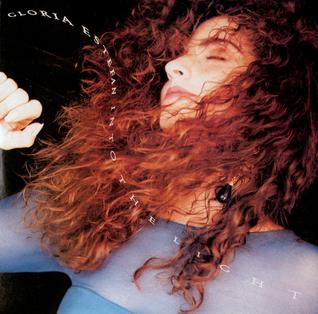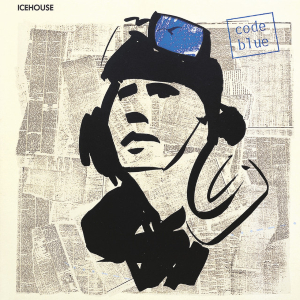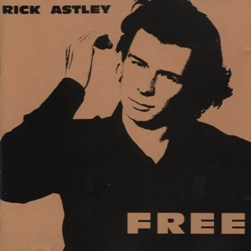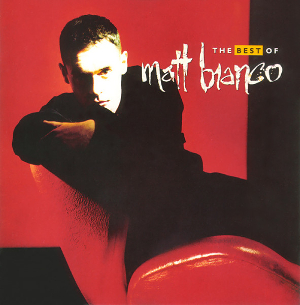
Journeyman is the eleventh solo studio album by Eric Clapton. Heralded as a return to form for Clapton, who had struggled with alcohol addiction and recently found sobriety, the album has a 1980s electronic sound, but it also includes blues songs like "Before You Accuse Me", "Running on Faith", and "Hard Times." "Bad Love" was released as a single, reaching the No. 1 position on the Album Rock Chart in the United States, and being awarded a Grammy Award for Best Male Rock Vocal Performance in 1990. "Pretending" had also reached the No. 1 position on the Album Rock Chart the previous year, remaining at the top for five weeks.

Matt Bianco are a British band that were formed in 1983. They are mainly known for their success in the mid-1980s and their jazz, Latin-flavoured music. The group's name suggests that Matt Bianco is a person, often assumed to be an alias for the main member and front man Mark Reilly. According to the group, however, Matt is in fact "a made up spy, a secret agent; we loved spy TV themes and film scores".

Duets is the first collaboration studio album by English musician Elton John, released in 1993.

Cuts Both Ways is the debut solo album by American recording artist Gloria Estefan. Though the release marked the first time Estefan was billed solely as a solo artist, Miami Sound Machine still performed instrumentation for the album. It has sold over 20 million copies worldwide.

Fresco is the fourth and final to date studio album by the British dance band M People. It includes the Top 10 singles "Just for You" and "Angel St", the single "Fantasy Island", and a cover version of the Roxy Music song "Avalon". The album reached number 2 in the UK Albums Chart, and was supported by a large UK arena tour. The tour confirmed M People as one of the UK's most successful live acts of the 1990s. Fresco became M People's last studio album to date as the group has not released any new material since. Various hit collections followed as well as two solo albums from lead singer Heather Small. By the end of 1998, Fresco had sold over 750,000 copies in the UK.

Into the Light is the second studio solo album released by American singer Gloria Estefan, but is the 14th overall, released on January 22, 1991, by Epic Records. The album reached number five on the US Billboard 200, becoming her most successful album on the chart.

Whose Side Are You On? is the debut album by British band Matt Bianco, released in 1984. For this album, Matt Bianco was a trio of Basia Trzetrzelewska (vocals), Mark Reilly (vocals), and Danny White (keyboards).

Mi Tierra is the third studio album by Cuban-American recording artist Gloria Estefan, released on June 22, 1993, by Epic Records. Produced by husband Emilio Estefan, it is a Spanish-language album and pays homage to her Cuban roots. The album features Cuban musical genres, including boleros, danzón and son music. Recorded at Crescent Moon Studios in Miami, Florida, Mi Tierra features notable Latin musicians such as Tito Puente, Arturo Sandoval, Cachao López, Chamin Correa and Paquito D'Rivera.

Code Blue is the sixth studio album by the Australian rock/synthpop band Icehouse and was released in November 1990 by Regular Records. Code Blue peaked at #7 on the Australian album charts.

Matt Bianco was the second album by the British band Matt Bianco, released in 1986 for WEA. For this album, the band's line-up comprised vocalist Mark Reilly and musician Mark Fisher. Jenni Evans sings backing vocals on nearly every track, but was not listed as an official band member.

Hold Me, Thrill Me, Kiss Me is the fifth studio solo album and first cover album by Cuban-American singer Gloria Estefan, released in October 1994. It is Estefan’s 17th album overall.

Abriendo Puertas is a 1995 album released by Gloria Estefan. It is her sixth studio album as a soloist and second Spanish language album released.

Destiny is the seventh studio solo album released by Cuban-American singer Gloria Estefan, but is the nineteenth of her career overall. It shipped 1.6 million copies worldwide in its first month of release.

Samba in Your Casa is the fourth studio album by British pop/jazz/soul/dance band Matt Bianco, released in 1991. It was their first long playing record for EastWest label, and came out one year after their first Greatest Hits album for WEA, the UK number 49 The Best of Matt Bianco, and three years after their third studio work, the UK number 23 Indigo, the latter including their UK number 11 dance smash hit double A-side single "Don't Blame It on That Girl/Wap-Bam-Boogie". Unlike their typically jazz and soul early works, the 1991 album was more oriented to Latin pop, dance, and electronic music, but did not achieve much commercial success in Europe, instead starting a loyal fan base for the group in Japan and Asia, though it was in fact well received in Germany too, one of the few European countries which never forgot Matt Bianco. The LP was mainly promoted by the single "Macumba", and the title track "Samba in Your Casa", which featured as a B side on the second single, a cover version of "What a Fool Believes", which did not get much airplay though - this item also included "Say It's Not Too Late", from the previous studio album by the band, the mentioned 1988 Indigo. The first single, instead, besides two different remix versions of "Macumba" by Bobby Summerfield, also contained a new remix of "Wap-Bam-Boogie" by mixmaster Phil Harding and Ian Curnow.

Lovers in the City is a 1995 album by Tanita Tikaram. Jennifer Warnes provided backing vocals on four tracks on the album. One of these songs, "I Might Be Crying", was released as lead single. A video for this single was filmed in Vietnam. The album reached No. 75 in the UK charts. "I Might Be Crying" was the first single to be released from the album, and peaked at number 64 in the UK. "Wonderful Shadow" was the second single to be released and peaked at number 198 in the UK. "Yodelling Song" was the third and last single to be released and then only in some countries in continental Europe.

Free is the third studio album by English singer Rick Astley, released on 12 March 1991 by RCA Records. It was his first album not to be produced by the noted production team of Stock Aitken Waterman. It gave Astley another hit single in the ballad "Cry for Help", which became a Top 10 in both the UK and US. Further singles "Move Right Out" and "Never Knew Love" were less successful. Free reached the UK Top 10 and the US Top 40 and marked the end of a successful four-year period for Astley.

Across from Midnight is the sixteenth studio album by Joe Cocker, released in 1997.

Soulbook is the 25th studio album by Rod Stewart. Like his previous five albums, Soulbook features Stewart singing old material; for this album he sings classic material from Motown and the soul genre. It was released on 17 October 2009 and was produced by Steve Tyrell, Steven Jordan and Chuck Kentis.

Hard Knocks is the twenty-first and penultimate studio album by Joe Cocker, released on 1 October 2010 by Columbia Records in Europe. It features nine new songs produced by Matt Serletic plus Cocker's version of the Dixie Chicks number "I Hope", which was produced by Tony Brown. Apart from a regular CD release, the album was also released on vinyl.

The Best of Matt Bianco is a compilation album by British band Matt Bianco. It was released in 1990 by Warner Elektra Atlantic Corp.



















